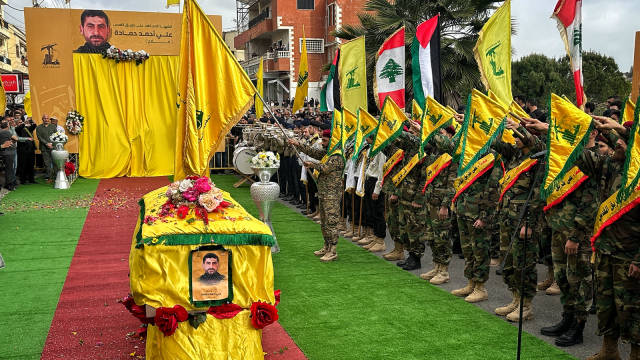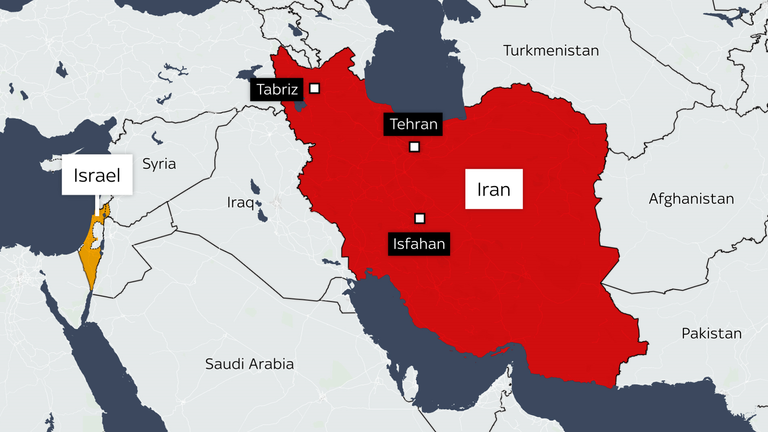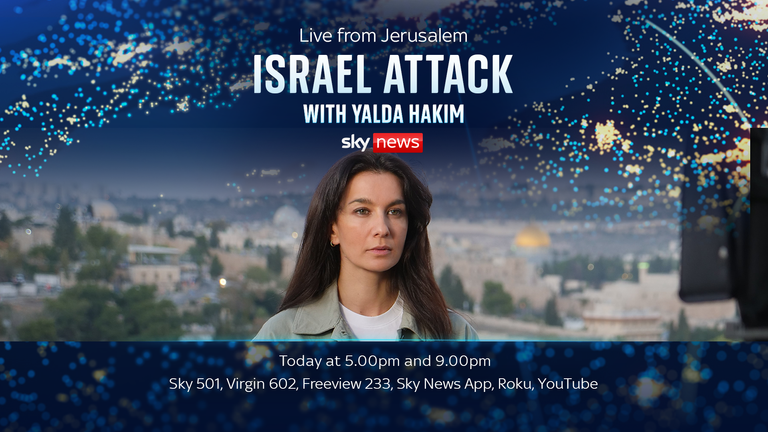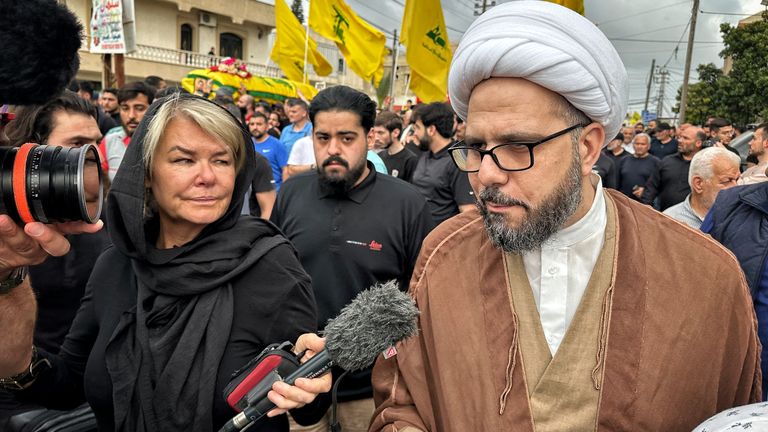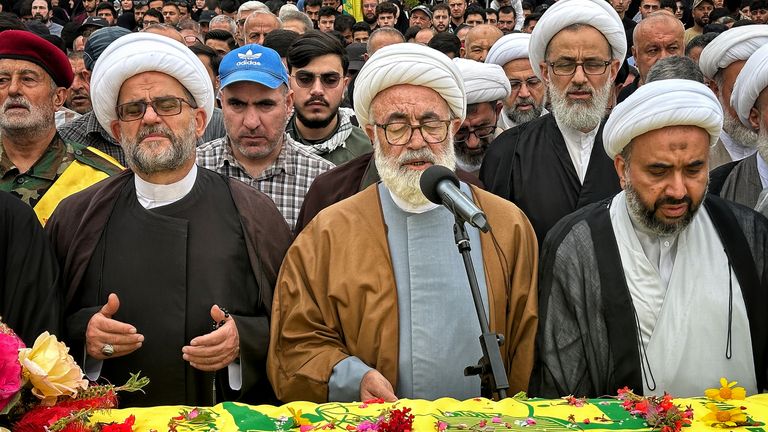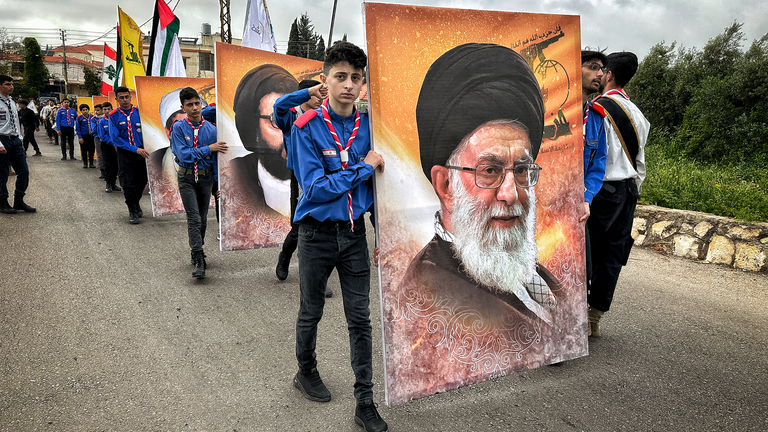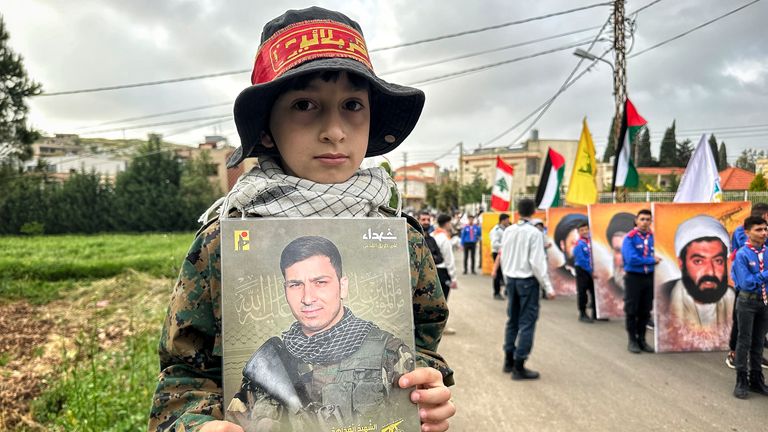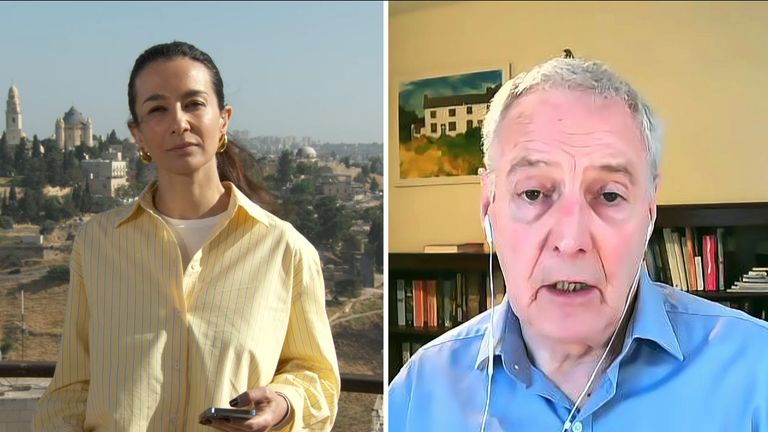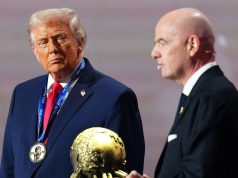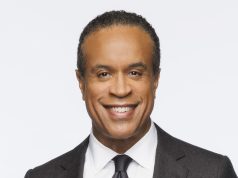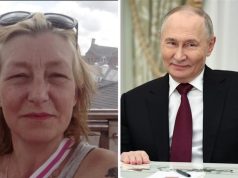The strongest of Iran’s proxies – the Hezbollah militia in Lebanon – has been almost dismissive in its response to the overnight events in Isfahan.
In the first public statement, the deputy secretary general of Hezbollah Sheikh Naim Qassem seemed to express disdain at what they appear to be judging as Israel’s low-level response.
“They are afraid,” he said, adding: “And do not have a clear plan.”
Follow latest: Middle East conflict
If that is the agreed line, then it would seem to be drawing a line under the most recent worrying flare-up.
We’ve spent the past week talking to Hezbollah; to those closest to Hezbollah; to those in Lebanese authority and to military personnel – and they all stated clearly and unequivocally how the militant group did not want war with Israel.
“The ball is in Israel’s court,” said one senior political figure.
Khodor Taleb, an analyst and a former adviser to three Lebanese prime ministers, told us: “I can tell you 100% that Hezbollah does not want war.”
But this morning, he told us the Israeli response appeared to be in line with what might be considered “an acceptable response”.
The interpretation of that would seem to indicate, for now, the invisible red lines had not been crossed and it might just be enough for Iran and its proxies to dismiss as inconsequential – and for Israel to demonstrate it has indeed responded.
But be in no doubt, the risk for all-out war in this region, remains incredibly high.
We were at one of the many funerals of Hezbollah fighters in southern Lebanon this week.
“We are not afraid,” the loyalists and fighters told us over and over again. “We will fight to the death,” others said.
Read more:
Analysis: The rules of the game in the Middle East have shifted
Analysis: Israel’s attack on Iran reflects badly on Biden
Analysis: Israel’s response appears to have been carefully chosen
Hezbollah is a potent, powerful force sitting on the border with Israel and it is absolutely aligned with Iran. It has direct and indirect links.
There were posters of the Iranian supreme leader Ayatollah Ali Khamenei at the Hezbollah fighter’s funeral, for instance.
Even if an immediate crisis has potentially been averted, to view this as the end of the matter, would be to severely underestimate the level of danger which already exists – and will continue to exist.
The ability and motivation of Hezbollah (and all the Iranian-proxies which form the so-called Axis of Resistance) to mount concerted attacks continues to be dangerously high.
This is unlikely to halt the activities of the Houthis in Yemen or the militias in Iraq and Syria – and certainly not Hezbollah in Lebanon who remain cognisant of the repeated Israeli intentions to ‘take on’ Hezbollah after Hamas.
But as Hezbollah themselves keep on insisting – and demonstrating – they are a whole different ball game to Hamas.
And at the centre of it all is Gaza and Palestine. “We need a two-state solution,” the Lebanese foreign minister told us a few days ago. “Without this, there will be no peace. And the United Nations needs to act.”

